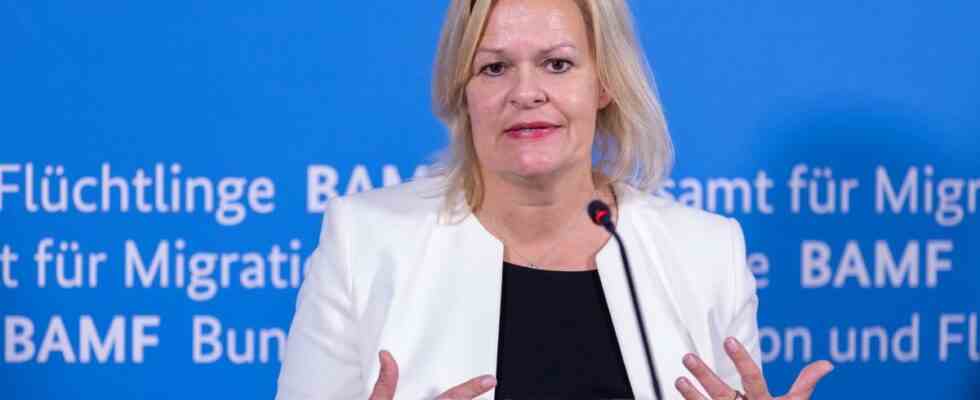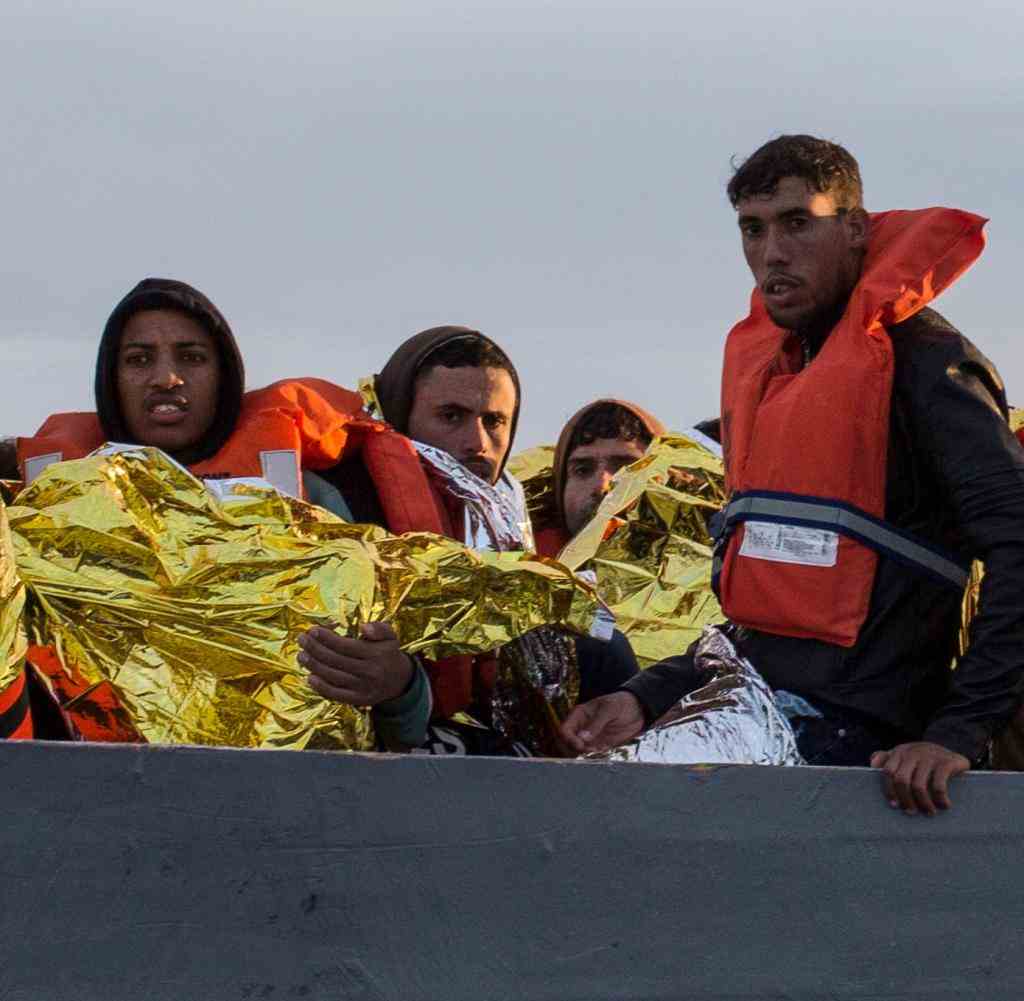Faeser wants to extend border controls and offer real estate for refugees
Migration and mass exodus from Ukraine – What Faeser is planning now
More than 1.1 million people have already sought refuge in Germany this year. Before the refugee summit, the municipalities asked the federal government for more money. You can find out here in full what Minister of the Interior Fiber is planning.
Whether via the Balkan route or from the Ukraine: More and more migrants are coming to Germany. Interior Minister Nancy Faeser (SPD) wants to provide more accommodation. She also announced that controls at the Austrian border would be extended. The Greens criticize it.
AIn view of the increasing number of refugees, the federal government wants to make federal real estate available for the accommodation of 4,000 refugees. Federal Minister of the Interior Nancy Faeser (SPD) also announced that controls at the border between Bavaria and Austria would be extended beyond November after a top-level meeting with representatives of the federal states and municipalities on Tuesday. Faeser called on the Serbian government on behalf of the federal government to stop visa-free entry for nationals of many third countries, which had led to an increase in unauthorized entry into the EU.
Faeser said that the 300 federal properties that have been offered so far have only been 68 percent occupied. However, she conceded that renovations are usually necessary before they can be used for refugees.
Faeser did not make any financial commitments. How the federal government wants to contribute financially to the refugee costs is to be clarified in a federal-state meeting at the beginning of November.
The chairman of the conference of interior ministers, Bavaria’s department head Joachim Herrmann (CSU), spoke of “enormous challenges that we are facing”. Germany continues to show an overwhelming willingness to help when it comes to taking in Ukrainians. However, he looks with great concern at the significantly increased number of asylum seekers. “As a result, the capacities in the accommodations are at the limit,” said the CSU politician. In view of the acute bottlenecks, the provision of further federal real estate must be pushed ahead at a rapid pace. He welcomed the extension of border controls.
The Greens, on the other hand, reject an extension of the controls at the German-Austrian border. “A steady extension of inner-European border controls not only contradicts European values, but also the coalition agreement of the traffic light,” write Green leader Omid Nouripour and the Bavarian Green parliamentary group leader Katharina Schulze in a published on Tuesday Guest contribution for the website “t-online”. It is the task of the minister to defend the achievements of European unification.
Leipzig Mayor draws comparison to the refugee crisis
The Vice President of the German Association of Cities, Leipzig Mayor Burkhard Jung, said the situation was very critical in some places. Tent cities have already been erected in Leipzig. In Dresden, an exhibition hall must be used for accommodation. The situation is comparable to the years of the so-called refugee crisis in 2015 and 2016. Caring for the many unaccompanied minors is also a major challenge.
According to the federal government, almost 135,000 people applied for asylum from the beginning of the year to September, almost 35 percent more than in the same period last year. In addition, refugees from Ukraine who can enter the country without a visa and who do not have to apply for asylum to stay legally must be accommodated. Faeser had already stated before the meeting that her goal was to reduce the number of unauthorized entries via the so-called Balkan route.
“Kick-off Politics” is WELT’s daily news podcast. The most important topic analyzed by WELT editors and the dates of the day. Subscribe to the podcast at Spotify, Apple Podcasts, Amazon Music or directly via RSS feed.


